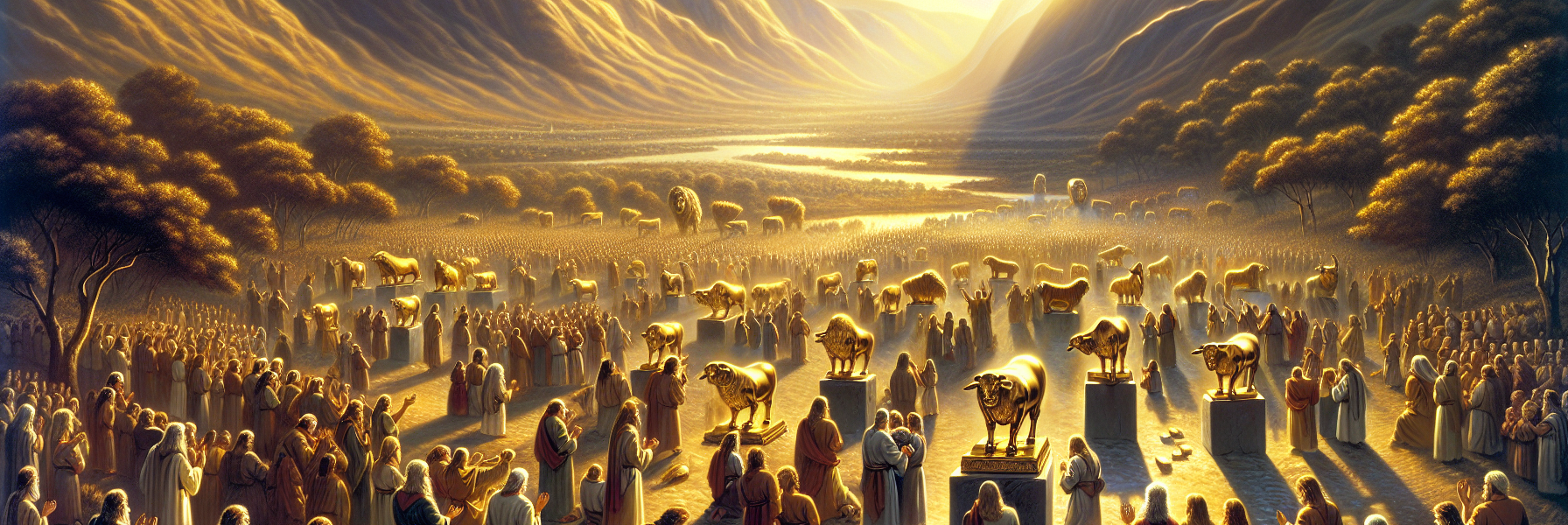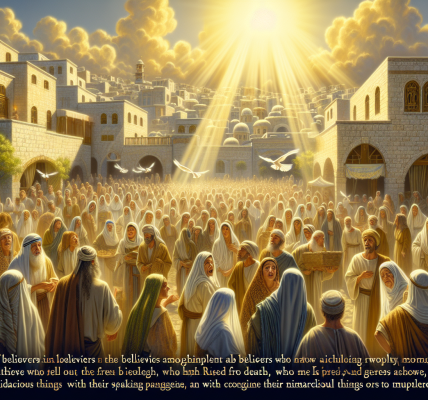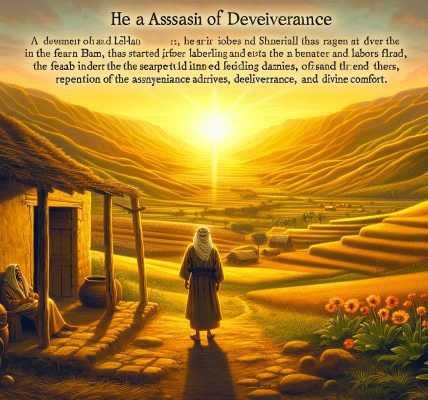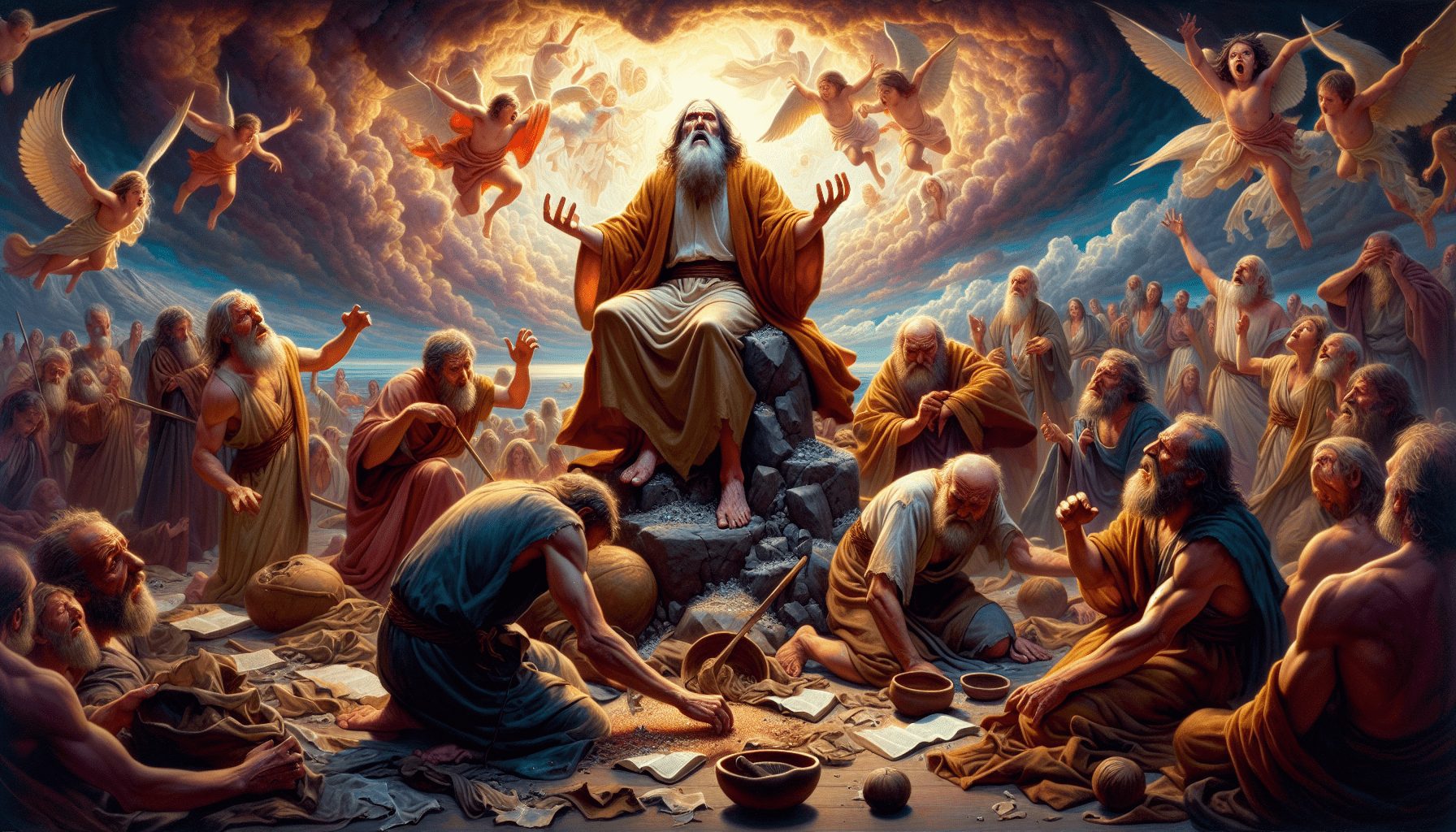**The Valley of Broken Idols: A Story Based on Hosea 13**
The sun hung low over the hills of Samaria, casting long shadows across the valley where the people of Ephraim had gathered. The air was thick with the scent of burning incense and the murmurs of prayers—not to the Lord, but to the idols they had crafted with their own hands. Golden calves, symbols of power and prosperity, stood gleaming in the fading light, their lifeless eyes staring blankly at the worshippers who bowed before them.
Among the crowd was a man named Micah, a merchant who had grown wealthy from the trade of fine linen and olive oil. Like many in Israel, he had long abandoned the ways of his ancestors, choosing instead to seek favor from the gods of the surrounding nations. “Why should we cling to the old paths?” he often said. “Baal gives rain, and Asherah blesses our crops. What need have we of a God who demands so much?”
Yet, in the quiet of the night, when the fires of the sacrifices had dimmed, a whisper stirred in Micah’s heart—a memory of the stories his grandfather had told him. Stories of a God who had delivered Israel from Egypt, who had parted the Red Sea and led them through the wilderness. But those tales seemed distant now, like echoes of a forgotten time.
### The Prophet’s Warning
One evening, as the people feasted and drank in celebration of another plentiful harvest, a stranger appeared at the edge of the valley. His cloak was rough and patched, his face weathered by years of hardship. His eyes burned with an intensity that silenced the laughter of the revelers.
“I am a messenger of the Lord,” the prophet declared, his voice cutting through the noise like a sword. “Hear the word of the Almighty: *‘When Ephraim spoke, there was trembling; he was exalted in Israel. But he incurred guilt through Baal and died. And now they sin more and more, making for themselves metal images, idols skillfully made of their silver—all of them the work of craftsmen. They say of them, ‘Let the men who sacrifice kiss the calves!’*”
A murmur of unease spread through the crowd. Some scoffed, but others shifted uncomfortably, their hands still stained from the sacrifices they had offered to lifeless statues.
Micah stepped forward, his voice laced with defiance. “Why do you trouble our peace? Our gods have given us wealth and security. What has your God done for us lately?”
The prophet’s gaze bore into Micah’s soul. “*Therefore they will be like the morning mist, like the early dew that disappears, like chaff swirling from a threshing floor, like smoke escaping through a window.* You have forgotten the One who made you, who fed you in the wilderness, who carried you like a child. But now, your pride will be your downfall.”
### The Storm of Judgment
The prophet’s words lingered in the air like a gathering storm. Days passed, and the people returned to their revelry, dismissing his warning as the ravings of a madman. But then, the rains ceased. The streams dried up, and the fields, once lush with grain, withered under the scorching sun.
Micah watched in horror as his wealth crumbled. The merchants from Damascus and Tyne no longer came to trade, for famine had spread across the land. The idols that had promised prosperity stood silent, their golden faces mocking the desperation of those who had trusted in them.
In his despair, Micah fell to his knees, clutching the dirt as the truth crashed over him like a wave. “We have been fools,” he whispered. “We traded the Living God for shadows.”
### The Promise of Mercy
Yet, even in judgment, the Lord’s voice was not absent. The prophet returned, not with condemnation, but with a glimmer of hope.
“*I will ransom them from the power of the grave; I will redeem them from death. Where, O death, are your plagues? Where, O grave, is your destruction?*”
Tears streamed down Micah’s face as he understood. The God they had abandoned had not abandoned them. His justice was fierce, but His mercy was deeper still.
That night, Micah took a hammer and shattered the golden calf he had once kissed in worship. The sound echoed through the valley, a declaration of repentance. Around him, others began to do the same, breaking the idols that had enslaved them.
The road back would not be easy. The land was still barren, the consequences of their sin still real. But for the first time in years, Micah felt something he had long forgotten—hope.
For the Lord, in His wrath, had remembered mercy. And though the people had sown the wind, He would not let them reap the whirlwind forever.
**The End.**



